Tips To Survive Extreme Heat Conditions
In this section you'll learn tips to survive extreme heat. Hot weather can be a killer for some people, learn how to avoid heatstroke and worse in heatwaves.
Exposing the body to extreme heat can push it beyond its normal conditions and can result to death.
Normally, when the human body is exposed to high temperature, it automatically perspires and cools down by on its own.
But when subject to extreme heat and high humidity, the human body finds it hard to react normally thus leading to extreme reactions and sometimes death.
This is common in old and young people, as well as sickly and overweight people. Men sweat more than women.
That is why they are more prone to the effects of extreme heat because when exposed to this condition they perspire heavily and becomes dehydrated.
Prolonged exposure to heatwave hot weather will lead critical physical reaction and sometimes death.
There are studies that show that a rise in the number of heat-related illnesses takes place when the atmosphere is extremely hot for a long period of time.
To avoid harmful effects of extreme heat, you must have the knowledge about what it’s all about and how to protect yourself.
Learn all about extreme heat conditions and how you can keep yourself from its fatal effects, before it’s too late.
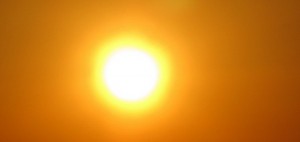
What is Extreme Heat Condition?
Extreme heat is a weather condition that occurs when the temperature and humidity is higher than the average temperature.
Based on the heat index, which is the measurement in degrees Fahrenheit (F) that tells how hot it really feels when relative humidity is added to the actual air temperature, one can tell the heat condition for the day and can avoid extreme heat exposure.
When prolonged for a period of time, it is now considered a heat wave, and can be very dangerous.
People who live in urban areas have a greater risk of experiencing effects of heat wave than people who are living in rural areas. Respiratory diseases are rampant during this condition.
The stagnated heat in urban areas can trap pollutants to produce unhealthy air, and combined with the extreme heat, could result in a disease prone atmosphere.
On top of this, the asphalt and concrete roads in urban areas absorbs heat and releases them at night; resulting to higher nighttime temperatures in urban areas known as the "urban heat island effect."
Effects of Extreme Heat on Health
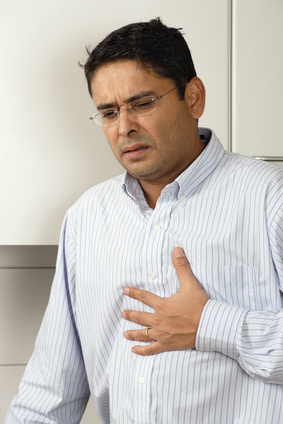
I. Heat Cramps
Heat cramps are muscular pains and spasms due to heavy exertion on extreme heat temperature.
Although heat cramps are not that dangerous, they are usually the first sign that the body is reacting negatively with the heat.
Symptoms of heat cramps:
Heat cramps can be very painful and usually affects the arms, legs, or abdomen after several hours of exertion in hot conditions.
Other symptoms also include faintness, dizziness, weakness, and excessive sweating.
Treatment of Heat Cramps:
It is easy to treat heat cramps. As soon as you experience any of the symptoms you need to stop whatever you’re doing and take a rest in a cool place.
Then drink fluids with electrolytes, like sports beverages.
Gently massage and stretch your cramping muscles, holding your joint in a stretched position until cramps subsides.
If heat cramps persist after an hour of rest and fluid intake, it is time to seek medical help.
To avoid heat cramps, take plenty of fluids while doing heavy exertion on extreme heat conditions.
If you can avoid staying out in the heat while working hard and doing heavy labor, do so.
But if you really must, take some time to cool off and rest your muscles from time to time.
II. Heat Exhaustion
Heat exhaustion happens when people exercise heavily or exert effort in a hot and humid place. A big amount of body fluids are lost when people sweat heavily.
The blood flow to the skin increases when the body perspires too much. When this happens, the blood flow to vital organs decreases.
The result is in a form of mild shock. If not treated immediately, the victim's condition will worsen.
Chances are the body temperature will keep rising, leading to heat stroke.
There are two types of heat exhaustion; water depletion and salt depletion.
Each type is differs according to symptoms.
Water depletion can result to excessive thirst, weakness, headache, and even loss of consciousness; while salt depletion can cause nausea and vomiting, frequent muscle cramps, and dizziness.
Although heat exhaustion is not as serious as heat stroke, without proper and immediate treatment, it can become one and can damage the brain, vital organs, and even cause death.
The common signs and symptoms of heat exhaustion include;
· Dizziness, nausea and fainting
· Confusion and headache
· Fatigue and muscle cramps
· pale skin, rapid heartbeat and profuse sweating
· dark-colored urine (which indicates dehydration)
Treatment for Heat Exhaustion
If you show signs and symptoms of heat exhaustion, it's important to immediately get out of the heat and rest in an air-conditioned environment.
If you do not have immediate access to such place, try to find the nearest cool and shady place.
Then drink plenty of non-caffeinated and non-alcoholic beverages.
Loosen or remove any tight or unnecessary clothing. As soon as you feel that you are able to stand without fainting, take a cool shower, bath, or sponge bath.
If there is no relief within 30 minutes, call your doctor immediately.
To avoid any recurrence of heat exhaustion, you need to keep away from heavy work in high temperatures.
So it's best to avoid this until your doctor tells you that it's safe to resume your normal activities.
III. Heat Stroke
Heat stroke is a form of hyperthermia where the body temperature rises dramatically.
During extreme heat conditions the body's temperature control system, which produces sweating to cool the body, stops working.
The body temperature rises so high that brain damage and death may result if victim is not treated immediately.
Symptoms of heat stroke can sometimes be mistaken for heart attack or other heart conditions.
People usually display of heat exhaustion before progressing to heat strokes.
Common symptoms and signs of heat stroke include:
· high body temperature and rapid pulse
· absence of sweat in a hot red or flushed dry skin,
· difficulty breathing and agitation,
· strange behavior with hallucinations,
· disorientation and confusion
· seizure that might lead to coma
Treatment of Heat Stroke:
Heat stroke victims should receive immediate treatment to avoid other complications.
While waiting for medical help, you can start cooling down the victim. Get the victim to a cool and shady area.
Remove the victim’s clothing, and then apply cool water to the skin like spraying with cool water from a garden hose or you can place ice packs under the victim’s armpits and groin.
You can try to promote sweating and evaporation by fanning the victim.
If the victim is able to drink liquids, have them drink cool water or other cool beverages that do not contain alcohol or caffeine.
It is important to monitor the victim’s body temperature with a thermometer and continue cooling efforts until the body temperature drops to 101 to 102 F (38.3 to 38.8 C).
To avoid heat stroke, it is important to exert too much effort during extreme heat conditions.
Drink plenty of water and stay inside a cool place.
What to do during Extreme Heat Conditions
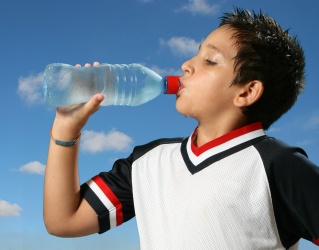
1. If your home does not have air conditioning, choose other places you go to get relief from the heat during the warmest part of the day.
Schools, libraries, theaters and other community facilities often provide air-conditioned refuge on the hottest days.
Air conditioning provides the safest escape from extreme heat.
2. Avoid strenuous work during extreme heat conditions.
If needed, you need to change some daily routine to keep yourself from being exposed in this weather temperature.
Avoid too much sunshine. Sunburn slows the skin's ability to cool itself.
The sun will also heat the inner core of your body, resulting in dehydration. Use a sunscreen lotion with a high sun protection factor (SPF) rating.
Extreme heat can quickly overcome the healthiest people, so don’t think that you are immune against the effects of extreme heat.
When you start feeling the symptoms of any of the effects mentioned earlier, it is best to get out of the heat as soon as possible.
3. Take note of your family members who may be taking medications or have medical conditions that might react negatively to extreme heat conditions.
Discuss these concerns with their doctors or any physician.
They can advise you about changes to medication or other activities you can do to temporarily relieve the effects of heat and prevent these family members from getting sick.
4. Check on family, friends, and neighbors who do not have proper air conditioning or cooling appliance to combat extreme heat conditions.
Elderly persons who live alone or with a working relative might need assistance on hot days.
Make sure that they are properly cared and monitored, in a cool and comfortable place.
5. Wear lightweight, light-colored clothing during extreme heat conditions.
Lightweight, light-colored clothing reflects heat and sunlight and helps maintain normal body temperature.
Cover as much skin as possible to avoid sunburn and over-warming effects of sunlight on your body.
Then try protecting your face and head by wearing a wide-brimmed hat.
A hat will keep direct sunlight off your head and face.
6. Discuss extreme heat wave with your family.
Everyone should know what to do in the places where they spend time.
Some places may not be air conditioned or safe during a heat wave, so plan alternatives.
Discussing extreme heat ahead of time will help reduce fear and anxiety, and lets everyone know how to respond.
7. Install window air conditioners snugly.
Insulate spaces around air conditioners for a tighter fit.
An air conditioner with a tight fit around the windows or wall openings will make less noise and allow less hot air in from the outside.
8. Make sure your home is properly insulated.
This will help you to conserve electricity and reduce your home's power demands for air conditioning.
Weather-strip doors and windowsills to keep cool air inside, allowing the inside temperature to stay cooler longer. Use attic fans.
If you have a fan installed to vent warm air out of your attic, use the fan to help keep your home cool.
9. Consider keeping storm windows installed throughout the year.
Storm windows can keep the heat out of a house in the summer the same way they keep the cold out in the winter.
10. Postpone outdoor games and activities.
Extreme heat can threaten the health of athletes, staff, and spectators of outdoor games and activities.
11. Avoid extreme temperature changes.
A cool shower immediately after coming in from hot temperatures can result in hypothermia, particularly for elderly and very young people.
12. Stay indoors as much as possible.
If air conditioning is not available, stay on the lowest floor, out of the sunshine.
Even in the warmest weather, staying indoors, out of sunshine, is safer than long periods of exposure to the sun.
13. Keep heat outside and cool air inside.
Close any registers that may allow heat inside. Install temporary reflectors, such as aluminum foil covered cardboard, in windows and skylights to reflect heat back outside.
14. Use a buddy system when working in extreme heat.
Partners can keep an eye on each other and can assist each other when needed.
Sometimes exposure to heat can cloud judgment. Chances are if you work alone, you may not notice this.
15. Drink plenty of water regularly and often.
Your body needs water to keep cool. Water is the safest liquid to drink during heat emergencies.
16. Eat small meals and eat more often.
Large, heavy meals are more difficult to digest and cause your body to increase internal heat to aid digestion, worsening overall conditions.
Avoid foods that are high in protein, such as meats and nuts, which increase metabolic heat.
17. Avoid using salt tablets unless directed to do so by a physician.
Salt causes the body to retain fluids, resulting in swelling.
Salt affects areas of your body that help you sweat, which would keep you cool.
Persons on salt-restrictive diets should check with a physician before increasing salt intake.
18. NEVER leave children or pets alone in closed vehicles.
Temperatures inside a closed vehicle can reach over 140 degrees F within minutes.
Exposure to such high temperatures can kill in minutes.
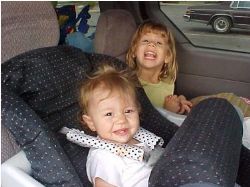
Important!
Talk to your family about these tips to survive extreme heat conditions so that they are prepared to take better care of themselves in heat wave conditions.
Continue to Research
The best way to protect yourself and your family from extreme heat conditions is to avoid it.
As they say, prevention is better than the cure.
If you are fully prepared for this type of temperature, you can minimize the effects.
Staying inside and keeping cool is the surest way to stay healthy during this time.
Taking into consideration all the tips that you have learned from this guide can save your life.
Bear all these in mind when extreme heat conditions strikes.
More Resources
There are some products that can help to keep you cooler than others, so I'll post some here for you to check out as I come across them online,
Hands-Free Compact Portable Fan CHECK PRICE
Small Fan & Mini-Air ConditionerCHECK PRICE
Tabletop Air-Circulator FanCHECK PRICE
Zinka Independence Day Colored Nosecoat .6oz TubeCHECK PRICE
Hard Hat Cooling PadCHECK PRICE
Bed Buddy Hot and Cold PackCHECK PRICE
Cool N Dry Body RAG Cooling Extreme Sports TowelCHECK PRICE
Cool Touch Comfort CushionCHECK PRICE
Sleep Better Iso-Cool Memory Foam PillowCHECK PRICE
Packable Women's Ginger Sun HatCHECK PRICE
Outdoor Research Men's Helios Sun HatCHECK PRICE
Adventure Hat by Sunday Afternoon HatsCHECK PRICE
Below here I'm featuring more pages with helpful how-to-do-it tips on this subject.
Feel free to submit your own story or article about it, and I will create your own page here with your contribution for the community to read.
Latest Tips for How To Do It Yourself: Better Health
Do you have a Health tip you want to contribute here? Share it!
Read the latest updates & rest of the how-to tips here:
Click the Title links below to see the latest how to do it tips and contributions to this page...
Top Tips for Keeping Your Horse Healthy This Summer
Hot weather is on the way (or already here, depending on where you live!), and pet owners everywhere are taking action to keep their pets healthy this …
Dog Care Tips for a Healthy Summer
During the hot summer months, your dog can suffer from all sorts of season-specific problems. To make sure you keep your dog healthy this summer, it helps …
Walking Your Dog in Hot Weather - What You Should Know
If you're a dog owner, chances are you really don't think much about your daily walks. But in the summer, there are some things you might want to consider …
Hot Weather Tips for Healthy Cats
It's important to keep your cat healthy all year round, but summer brings some particular situations that need specific action on the part of the pet owner. …
Avoid Injury During the Summer Months - Tips for Pet Owners
The summer months can be dangerous for pets, and pet owners should take note of the dangers. It's easy to forget that high temperatures, run-ins with wildlife, …
Keep Your Rabbit Safe and Healthy in the Hot Summer Months
While shelter from cold weather is something often emphasized in the construction of rabbit hutches and so forth, how to handle hot weather is sometimes …
Tips for Keeping Your Bird Healthy This Summer
Sometimes, bird owners get overlooked when it comes to pet tips. But birds can suffer in hot weather, too. Although they have a body temperature that's …
Signs And Symptoms Of Dehydration
If you do not drink enough, sweat too much, or have severe diarrhea, you can become dehydrated. Mild to moderate dehydration isn’t that dangerous and can …
Are You Dehydrated?
You have probably heard that 65% to 75% of your body is made up of water. That is why it is so important to stay hydrated.
Your body needs to continually …
Small Fan & Mini-Air Conditioner: The Original Handy Cooler, BlueCHECK PRICE

"Power Tips" magazine is back!
You Get A Free Complete Self Help Report delivered to your email box every edition, plus you get a free PLR article and other great gifts!
SUBSCRIBE BELOW ... I promise you will want to USE what you learn!
I really want to know what you think of this site, this page, and to hear your tips or suggestions about it.
So please share your story or simply add a Comment in the comment box.
If you feel that the information on this page has been useful to you please give it a Like or share it with your friends - thanks!!
"You are a life Saver!!
I recently discovered this site and I can tell you that my life has not been the same. I now come here EVERYDAY and spend at least 1 hour.
I used to spend that time browsing online fashion and beauty
magazine which just means that I spend more. Now I have replaced that
habit with coming here.
In future I will think about contributing articles as well. Thank you! Thank you!! Thank you!!! and God bless"
Contact Us | About Us | Terms of Use | Privacy Policy | FAQ | Testimonials
Amazon and the Amazon logo are trademarks of Amazon.com, Inc. or its affiliates. As an Amazon Associate I earn from qualifying purchases. Product prices and availability are accurate as of the date/time
indicated and are subject to change. Any price and availability
information displayed on [relevant Amazon Site(s), as applicable] at the
time of purchase will apply to the purchase of this product.
Back to HOME PAGE of this tips to survive extreme heat conditions section of the site.
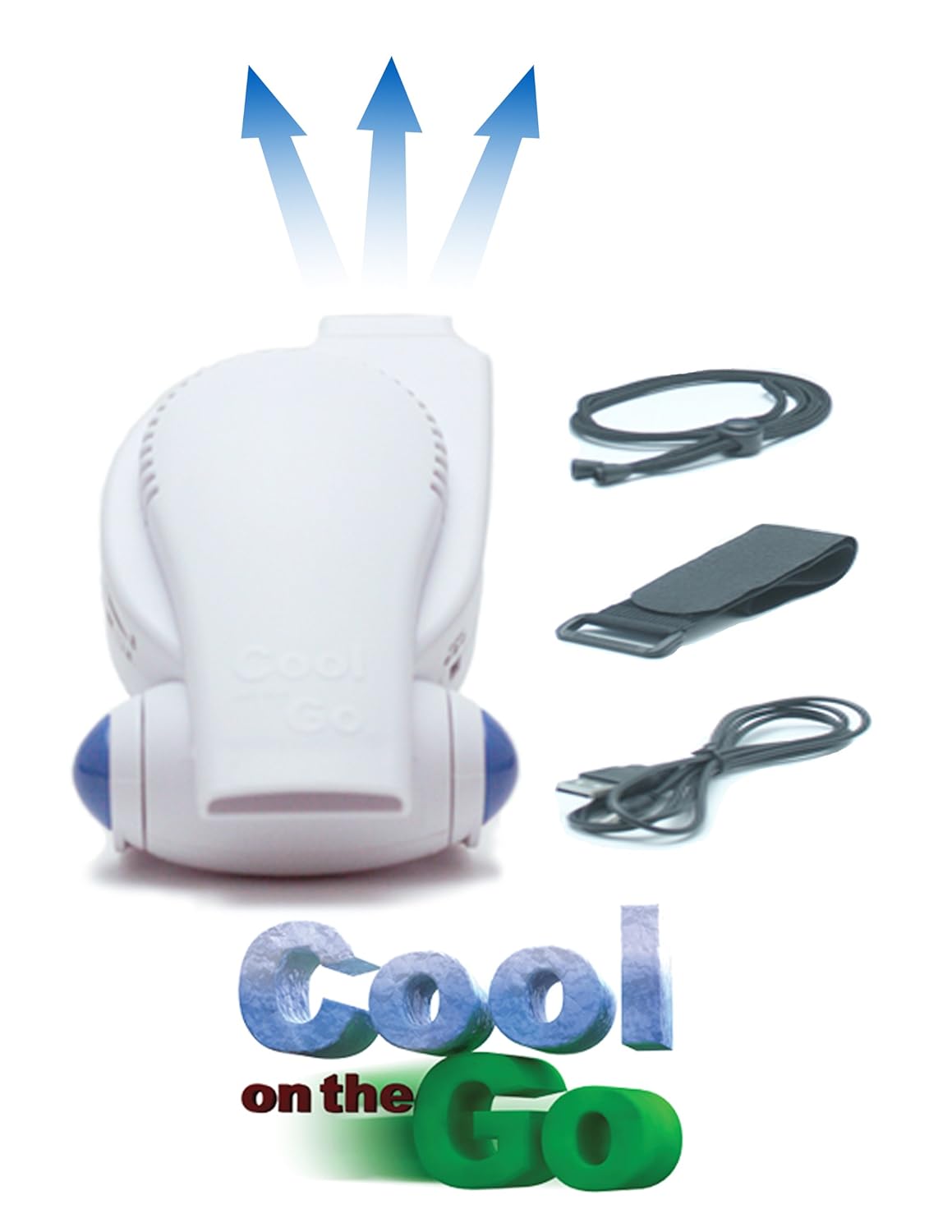

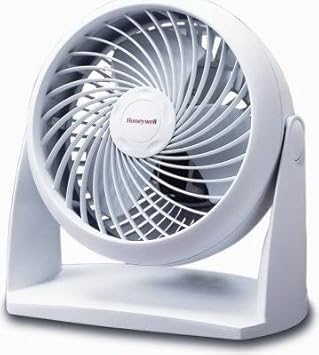
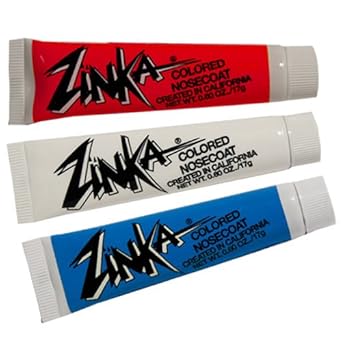
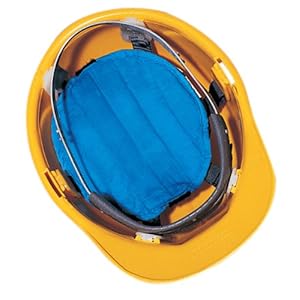
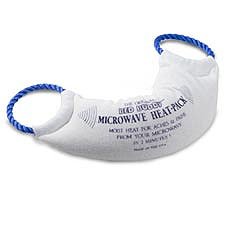
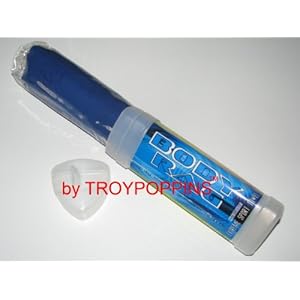
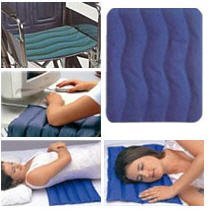
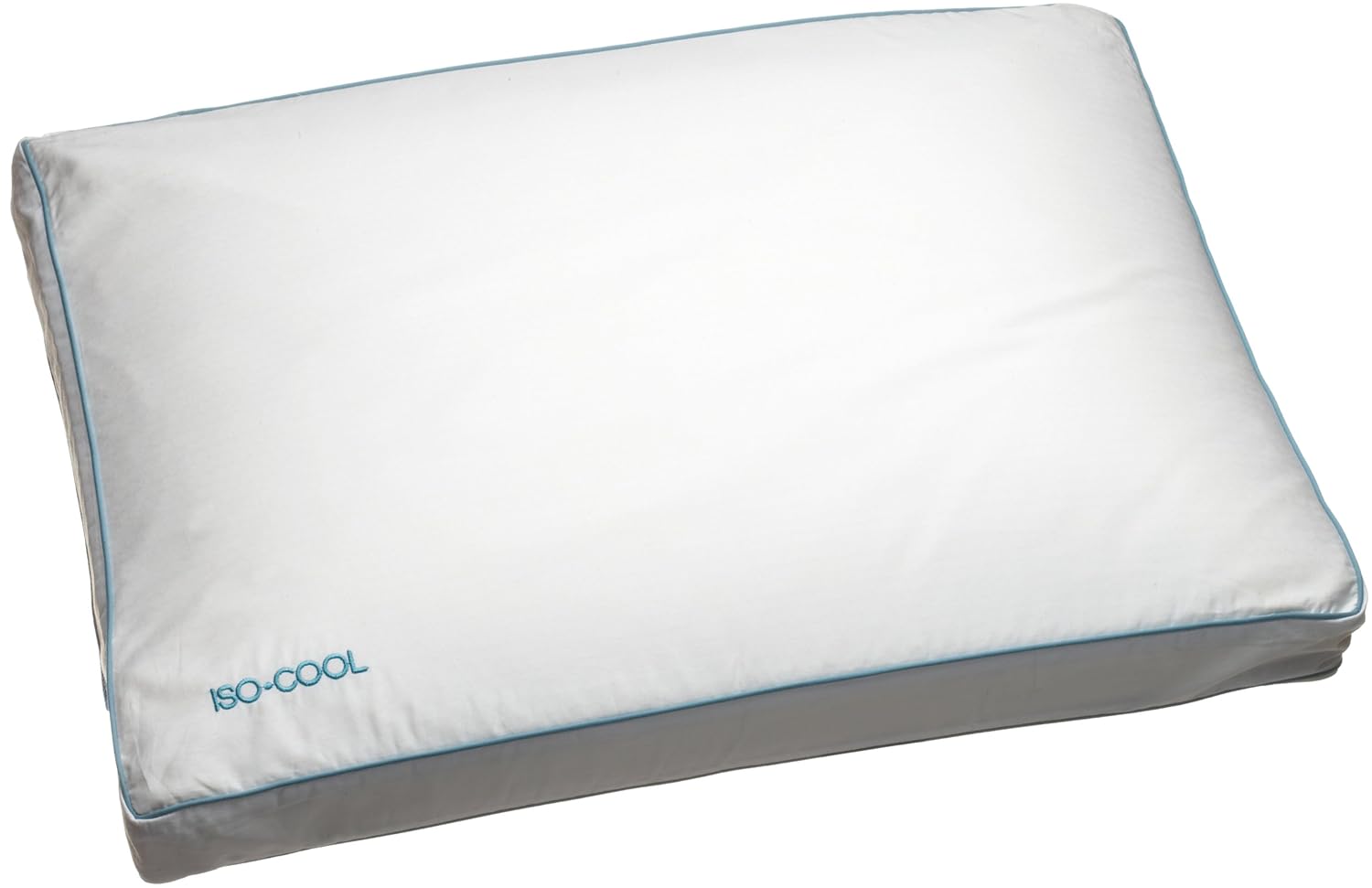

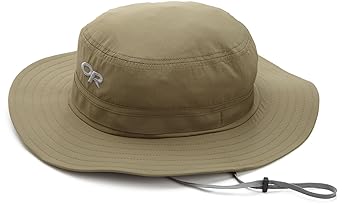
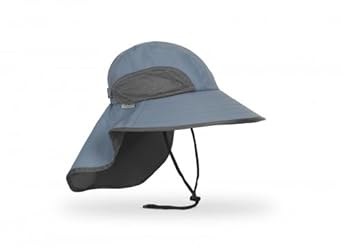
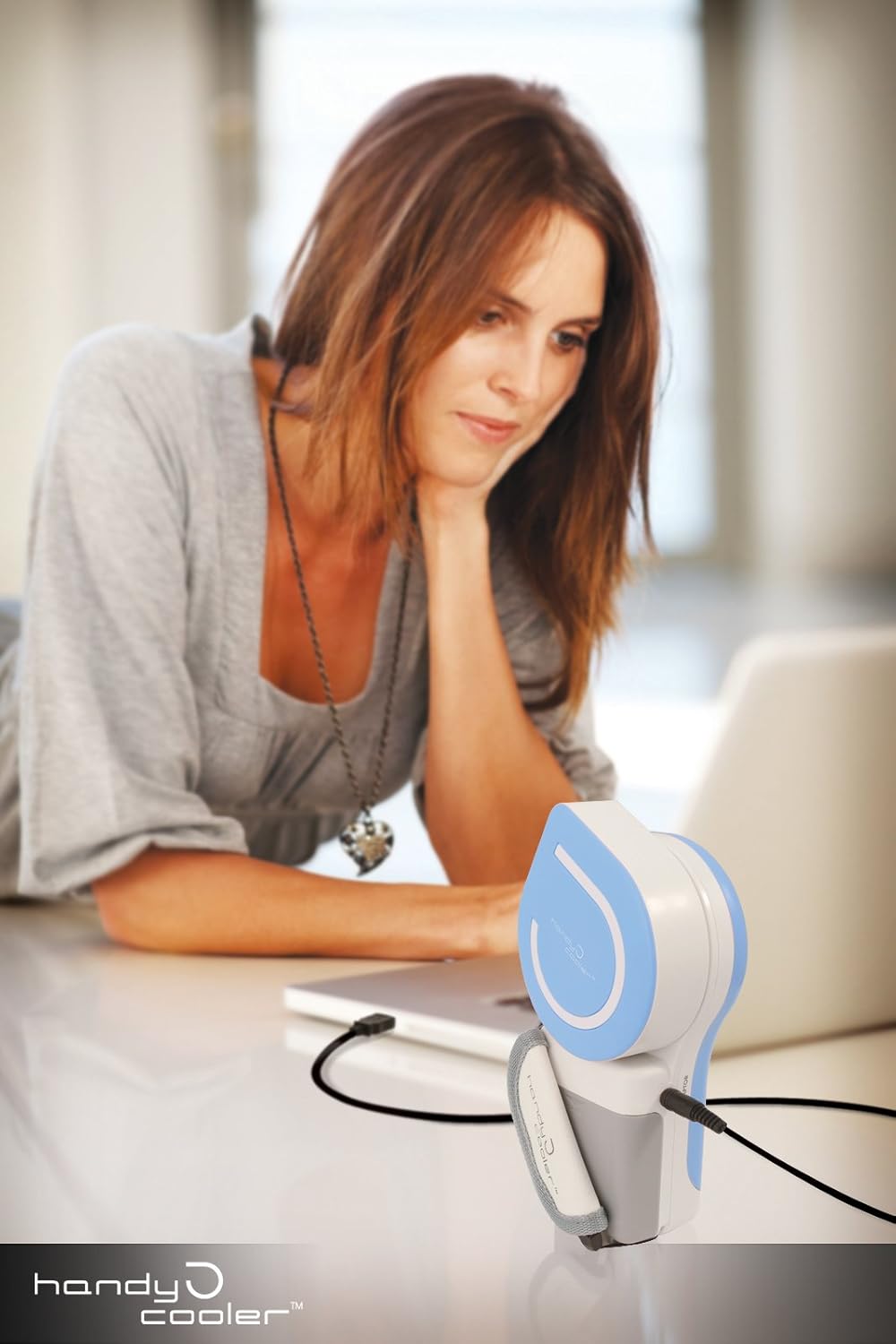








New! Comments
Have your say about what you just read! Leave me a comment in the box below.